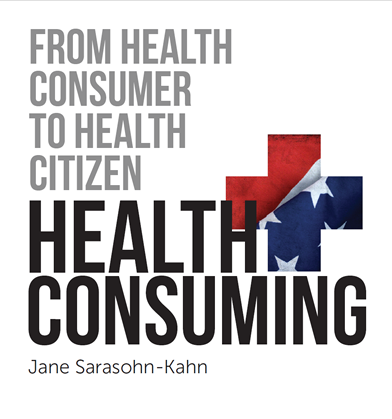Consider the voice of a patient before the advent of the Internet in the digital 1.0 world, and then the proliferation of social networks in v 2.0. One patient could talk with another over their proverbial neighborhood fence, a concerned parent at the PTA meeting with others dealing with a children’s health issue, or a recovering alcoholic testifying in person at an AA session.
Today, the voice of the patient is magnified one-to-many, omnichannel and multi-platform — via video, blogs, podcasts, social networks, listservs….and, yes, still in live forums like AA meetings, church basements, Y-spaces, and the Frazzled Cafe meet-ups in Marks & Spencer retail cafes across the UK.
WEGO Health’s new report on the state of patient social networks found that patients are indeed socially-sharing personal health information with each other — but getting savvier about it with respect to managing privacy.
Nine in ten patient influencers told WEGO Health that online communities play an important role in their health care decisions.
More granularly, nine in ten patient activists have shared personal details about a prescription drug they have used, and most of these people have had a positive experience doing so.

WEGO Health polled 412 patient activists on their use of social media for health. The top line is quite clear: among all social media platforms, most patients use Facebook to engage with people-like-them for health and social support. If Facebook disappeared, a plurality of these patients would turn to Instagram, then Twitter.
This, within a year of the Facebook/Cambridge Analytica revelations about the in-security of personal data and lack of transparency when it comes to a platform’s sharing of that data with third parties. I wrote about that moment here in Health Populi just over one year ago, saying that, “This week’s revelations about Facebook, Cambridge Analytica, and the U.S. political system will contribute to Americans’ continued cynicism and concern for privacy. People, and especially wearing the hat of a patient, need to feel that their personal data are held by trusted stewards. Doctors have long played that singular trusted role for holding data in the patient relationship.”
Fifty-five percent of patient influencers said that privacy concerns have not changed their use of Facebook. But that means that 45% of patients have adopted a more guarded approach using social media for personal health. One of the big shifts in patients’ social sharing of health information is that half are sharing on closed patient networks.
After trusting patient networks, the most-trusted sites are health-focused portals like WebMD and healthcare provider sites like Mayo Clinic, and patient/disease advocacy sites (e.g., American Heart Association, Susan G. Komen, et al.).
One of the key findings in this study is that patients’ trust of pharma sites is low.
Health Populi’s Hot Points: As patients’ trust of pharma websites remains low, the personal cost of prescription and specialty drugs for people managing challenging chronic conditions is growing. Media may report that the annual change in drug pricing has been more modest in the past year; however, the patient-facing cost can be onerous based on people enrolled in high-deductible health plans, co-payments and co-insurance.
The patient is the payor, I argue in my newly-published book, HealthConsuming: From Health Consumer to Health Citizen. In the book, I cite a survey which was a collaboration with the WEGO Health patient community on the cost of healthcare. Once we analyzed the results, we titled the poll, “The Empowered Patient and the Endangered Wallet.” That’s because one-half didn’t have enough money to cover their out-of-pocket costs; one-third had OOP spending over $5,000 in one year.

Increasingly, patient conversations cover costs as much as they do clinical-medical and social components. Financial health is part of the patient’s experience now. And pharma, already not-trusted for engaging with patients online, are in the sights of hospitals, health plans, and physicians in the current healthcare cost blame-game on Main Street in mass media and in Congressional Capitol Hill hearings.
Moving Americans from health consumers to health citizens will require dealing with health care access for all, addressing the negative fiscal and physical impacts of self-rationing care and drugs due to cost; and securing privacy in the era of the data cloud, AI and machine learning, and peoples’ desire to share data with people-like-me.
Healthcare industry, pharma and beyond: listen to patients. Social networks as trusted patient-empowered platforms can help patient/consumer health engagement and, as a positive side effect, build trust.
The post Listen Up, Healthcare: Hear The Patient’s Voice! appeared first on HealthPopuli.com.
Listen Up, Healthcare: Hear The Patient’s Voice! posted first on http://dentistfortworth.blogspot.com
No comments:
Post a Comment